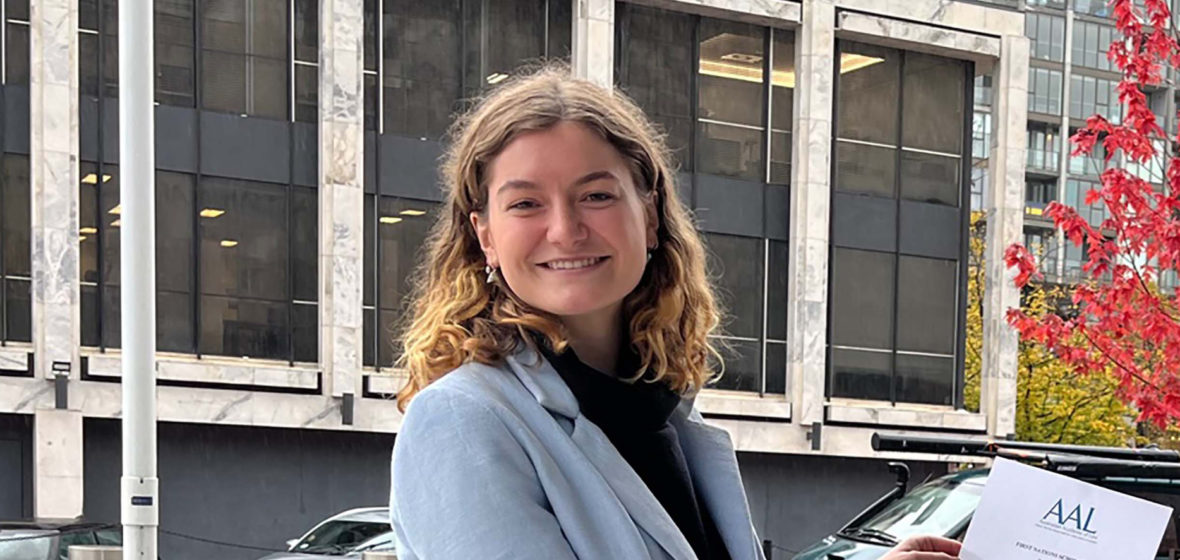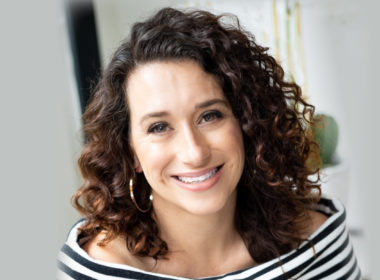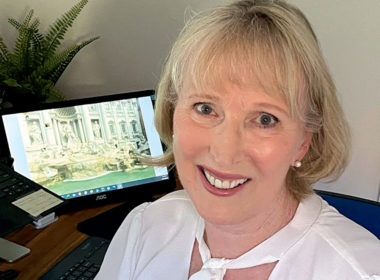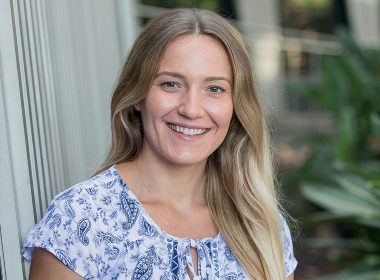Lillian Ireland is a proud Melukerdee woman and final year law student at the Australian National University (ANU). She has worked as a researcher for the Australian Institute of Aboriginal and Torres Strait Islander Studies and is currently an Associate to Acting Justice Richard Refshauge of the ACT Drug and Alcohol Court. She was recently awarded the Australian Academy of Law (AAL) 2022 First Nations Scholarship. Here are some of her hopes for the future.
Why did you choose to study law?
My parents instilled in me a care for people and Country as well. I knew I wanted to help people and conserve and protect Country as best I can. I enrolled in a science and law degree at ANU and am in my final year. I saw law as a tool to pursuing my passion in social and environmental justice. I want to work as a solicitor in the criminal law space, ideally with a community law firm that is Aboriginal and Torres Strait Islander people focused.
What does it mean to you to win the AAL First Nations Scholarship?
I am Melukerdee woman from Tasmania in the Southeast nation. The Aboriginal ancestry comes from my mother’s side. It’s really special for me to have won this scholarship because I feel like Tasmanian Aboriginal voices don’t receive as much limelight. Back home we’ve got so many amazing people connecting with culture and being loud and strong. It’s been awesome to win this scholarship and get to where I am, because it’s somewhere that people who have come before me haven’t had the opportunity to do. They haven’t even been allowed to dream of such an opportunity.
What have you learnt from your experience as a researcher and judicial associate?
I’ve worked with incredible people both as a researcher and judicial associate. With my research, I got to work with a lot of different Elders from different mobs. It was awesome to be on the ground and interact with different groups and hear what their aspirations were. I now work in the courts and have learnt so much about how the system operates. I currently work in the Drug and Alcohol Court which focuses on rehabilitating offenders. It’s been great to see how the legal system can operate differently compared to the traditional options.
What has been the biggest challenge you have faced so far?
It would be working in an area that can negatively impact so many people, be it those who have had a hard upbringing, victims, and especially Indigenous offenders – these systems aren’t always designed to best help these people. Sometimes I struggle with feeling like a cog in the wheel of a system. I’m really lucky to have worked with people who are pushing those traditional boundaries and adding care and an emotional side to this system that we have. It’s made me see the places we can go that we aren’t necessarily at now.
Have you got any advice for others hoping to follow in your footsteps?
My advice would be that you can absolutely do it, even when you think you can’t. I never thought I would be smart enough to get into law school. I never thought I’d be smart enough to be an associate to a judge or a magistrate, especially the couple I’ve worked for. Pursue the things you want to do. If you have the drive and the passion to do it, you can often get there.
What are your hopes for the future of the legal profession?
My hope would be that we recognise that it is a colonial system. Indigenous people are the most incarcerated group of people in the world. It’s not that the system is broken, it’s just working like a colonial system should. My biggest hope would be that people have awareness that it is a colonial system and that there needs to be an emotional side, some understanding and openness. There needs to be reform but also reform of people’s views and awareness of the system that exists. I guess my other hope would be to see lots more mob running the system rather than just being in it.




